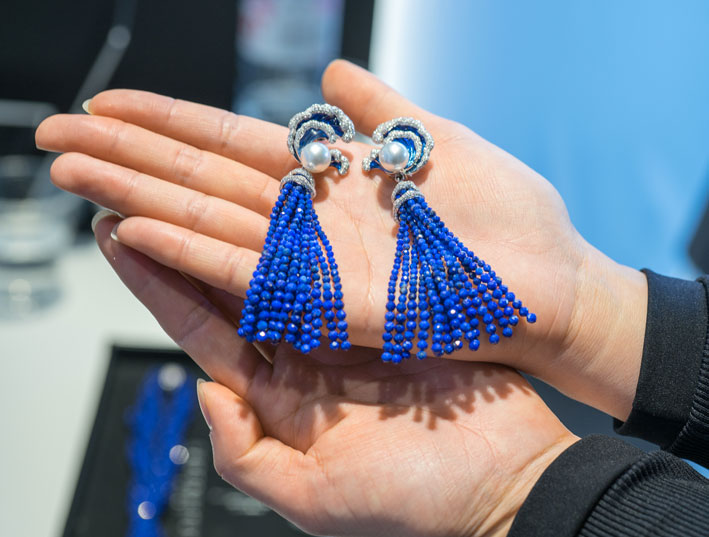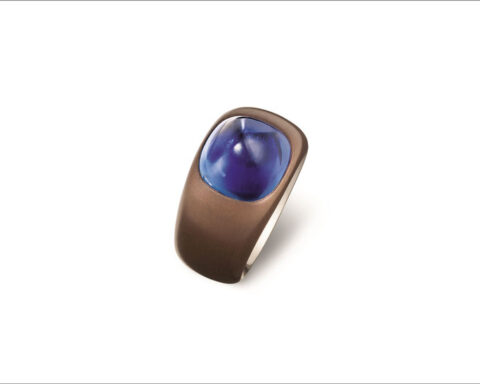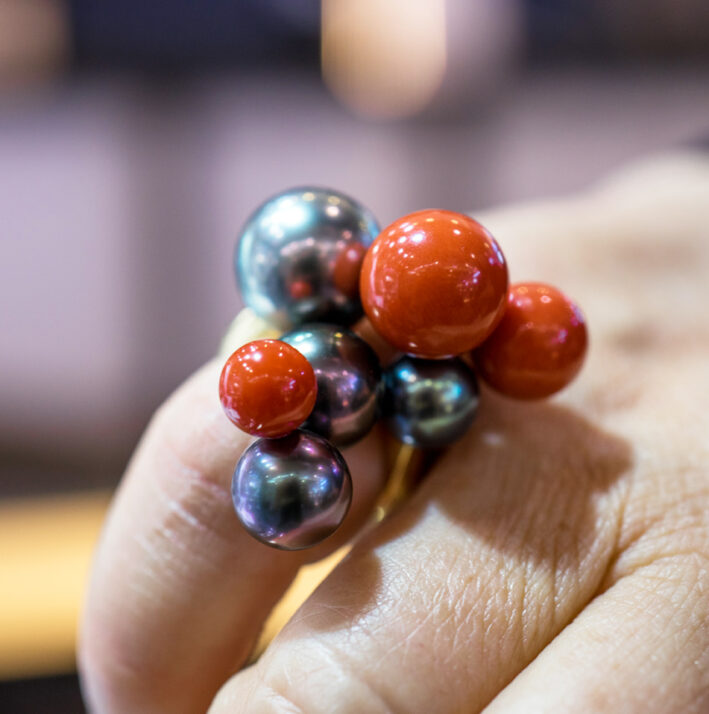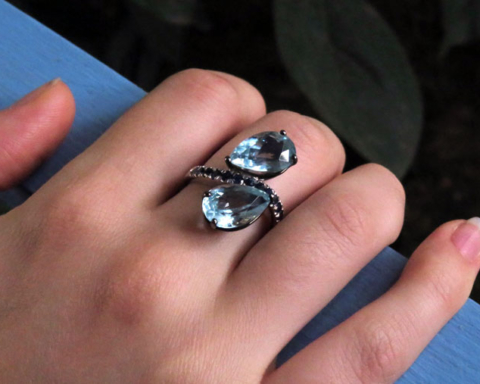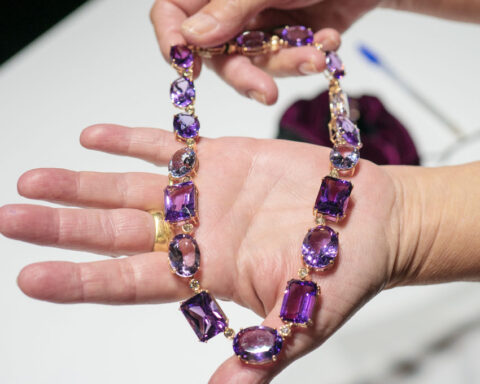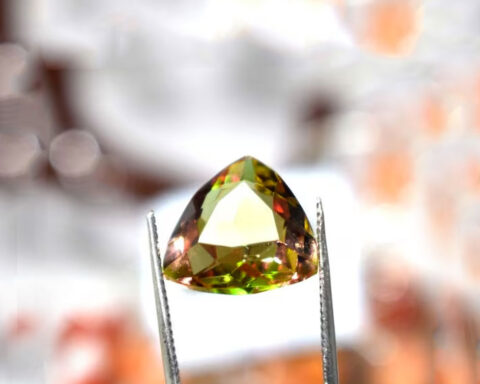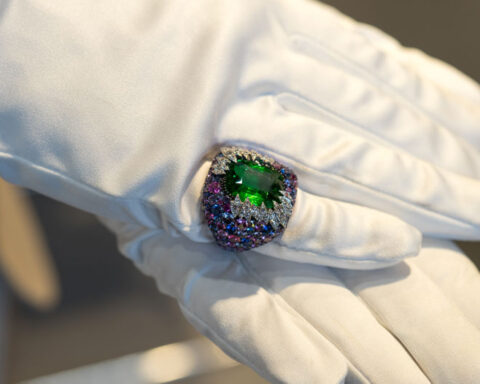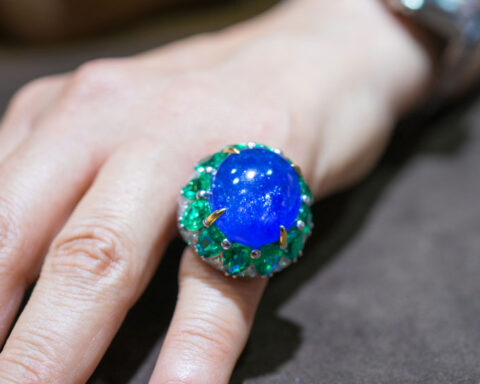The story of a rock, lapis lazuli, which has been transformed into a stone also used in high jewelery. But also in works of art, objects, elements of architecture. Here is everything you need to know about lapis lazuli, the blue stone with the oldest history.
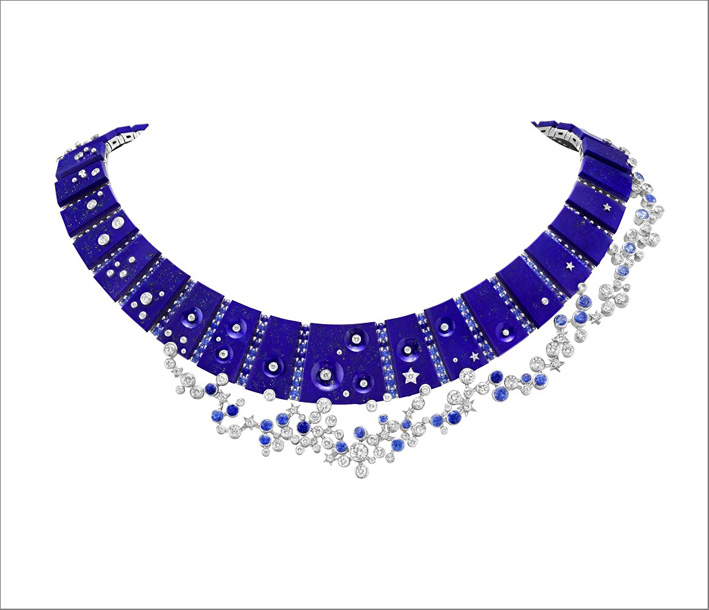
The name. The word lapis lazuli, sometimes abbreviated as lapis, has ancient origins. Lapis is the Latin word meaning stone, while lazuli is derived from the medieval Latin lazulum, which in turn has Arab and Persian origins, and means sky. Hence, literally lapis lazuli is a sky-colored stone. In ancient times, the stone was mined in a remote region of Afghanistan, but also in Persia. Until the Middle Ages, lapis lazuli were often called sapphire, but in reality it was not the true blue sapphire, a variety of corundum.
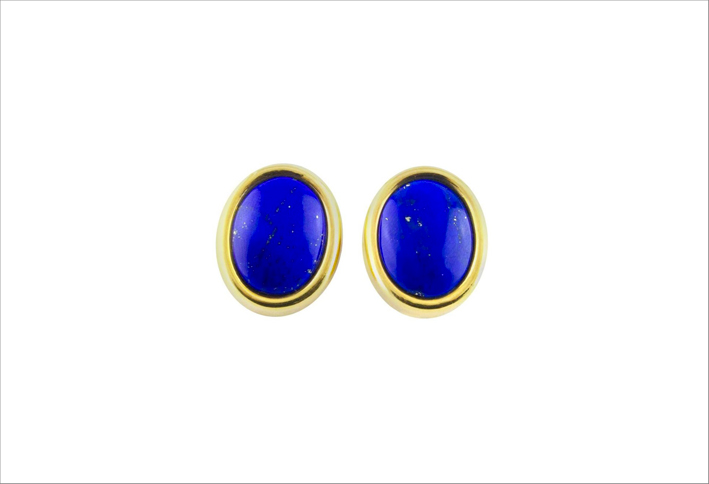
Color. Lapis lazuli is a rock composed of lazurite, haüyne (described for the first time in 1807 from samples discovered in the Vesuvian lavas of Monte Somma, in Italy), sodalite and nosean, a group of sodalite minerals. Colors range from medium blue, greyish to deep, royal blue, to deep indigo, with varying amounts of white gold and brass from inclusions of calcite and pyrite. The golden veins of gold colored pyrite are appreciated by many, but not all.
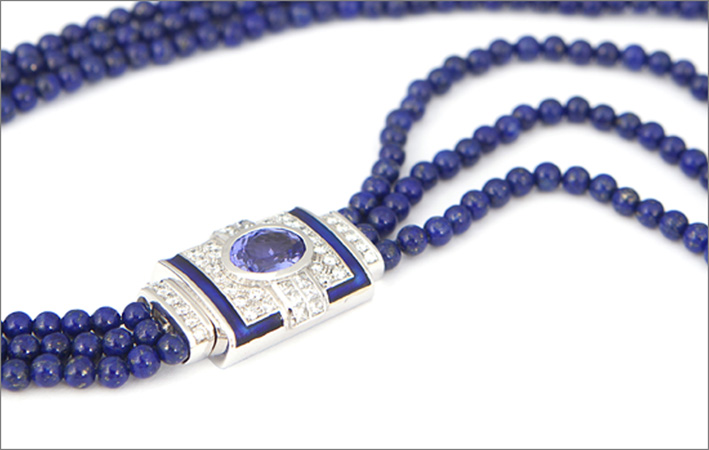
How much are lapis lazuli worth? It depends: the value is very much linked to the color of the stone. The most popular shade is a deep blue, almost purple. The white veins of calcite lower the value, while the stones with golden inclusions of pyrite are the most sought after in jewelry. The second element of evaluation concerns the cut of the stone, which must be regular, and the lucidity, as well as the state of conservation.
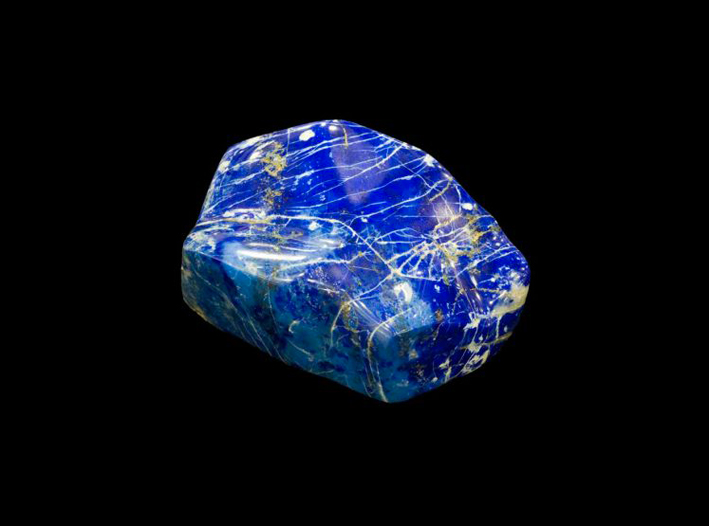
The use. Lapis lazuli are used in jewelry, but their color has suggested many different uses for centuries. Lapis lazuli artifacts from 7570 BC were found in the Indus Valley, India. Lapis lazuli was also used for the funerary mask of Tutankhamun (1341-1323 BC), while from the Middle Ages onwards the stones began to be used by painters, reduced to powder, as blue pigments by all the great artists, from Michelangelo, who used lapis lazuli to paint the Sistine Chapel, in Vermeer. But lapis have also been used in different architectures: for example, two of the columns in St. Isaac’s Cathedral, in St. Petersburg, are built with lapis lazuli.
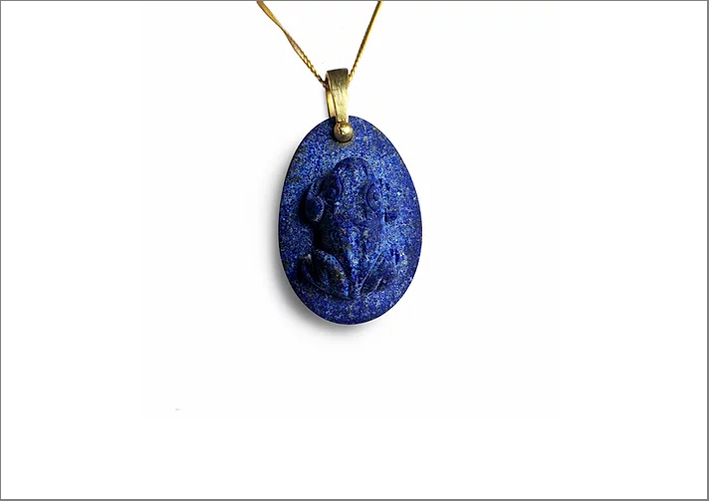
Where is it. Lapis lazuli is still mined in northeastern Afghanistan, but is now also found in mines west of Lake Baikal, Russia, the Andes Mountains in Chile, and in small quantities in Pakistan, Italy, Mongolia, the United States and Canada.
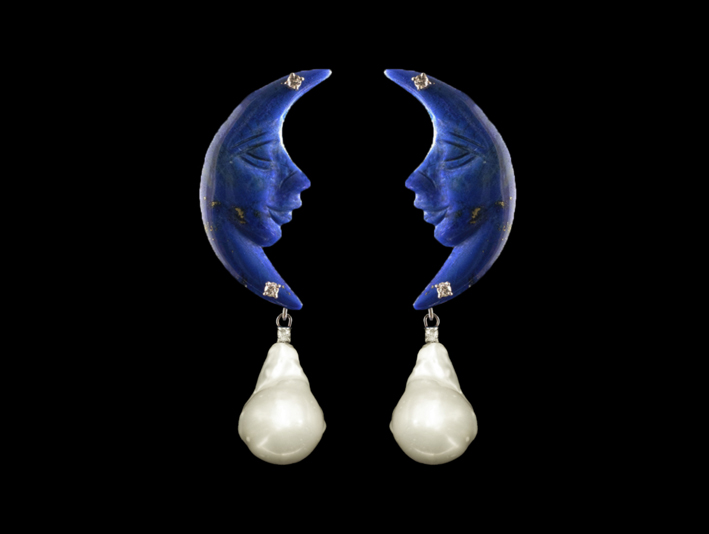
The imitations. There are also imitations of lapis lazuli: the stone, in fact, has been synthesized commercially and simulated by the process introduced by Pierre Gilson in France and by Carroll Chatham in the United States. Sometimes lapis lazuli is replaced by spinel, dyed jasper or howlite, a stone can easily be dyed to mimic other minerals, including lapis lazuli.
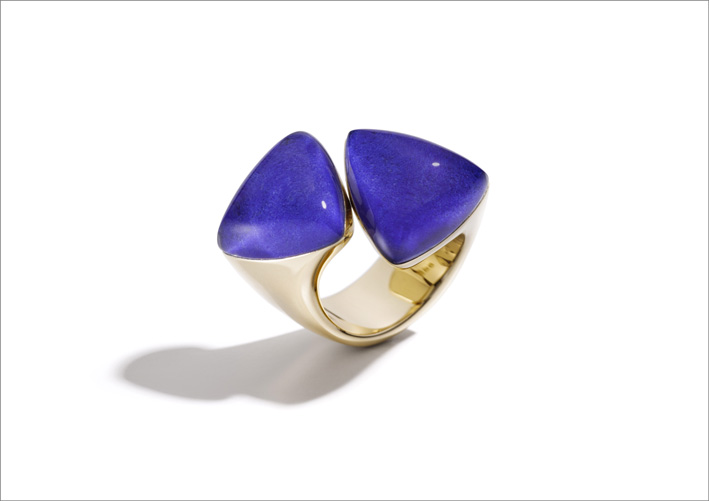
How to discover real or false stones. How to find out if your jewel has real lapis lazuli? There are two methods, which we do not recommend. The first is to pour a small drop of hydrochloric acid (usually sold as muriatic acid) on the stone. True lapis releases a gas (H2S), which has the characteristic smell of rotten egg. Another system is to rub the lapis lazuli on a rough sheet: the real stone must leave a blue stripe. Of course, there is a risk of damaging the jewel …
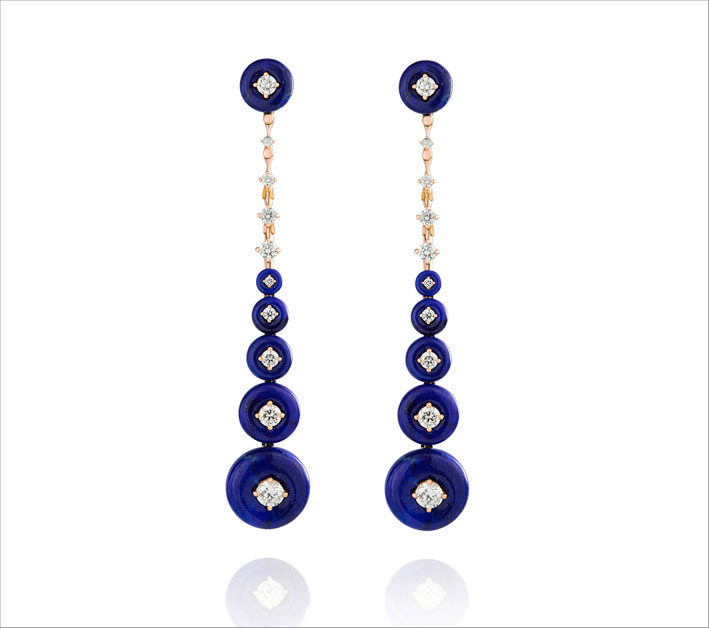
How to clean lapis lazuli. It is a stone that is not too hard (5-6 on the Mohr scale, which indicates 10 for the diamond). For this reason, it is necessary to avoid hitting the lapis lazuli on hard surfaces and not to store them together with other jewels that can easily scratch the stone. Lapis lazuli tends to tarnish over time: in this case it must be taken to a jeweler who will perform a new polishing. To clean the jewelry with lapis lazuli you can use the always valid method of water, a drop of neutral soap and a toothbrush with soft bristles. The jewel must then be dried with a soft cloth, to avoid scratches. Instead, it is better to avoid steam, ultrasounds and chemical solvents.


